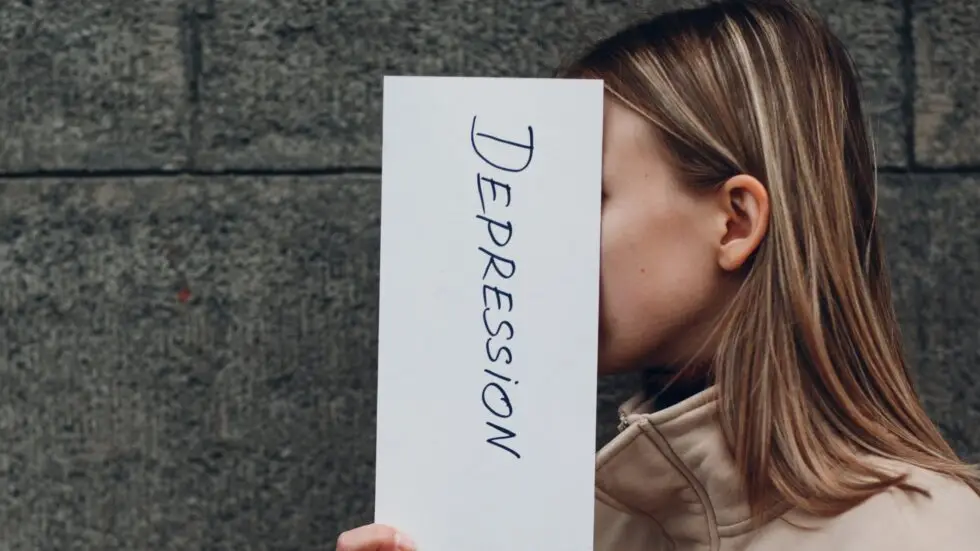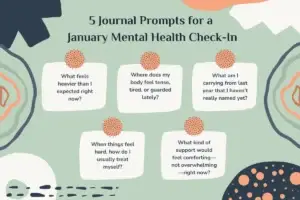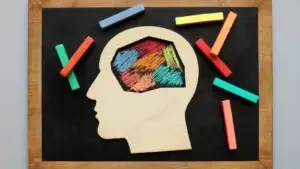When it comes to depression, we often think of the classic symptoms like feeling sad, hopeless, and spending a lot of time by yourself. However, depression can manifest in various ways that may not be as obvious at first glance.
Depression is very common. More than 17 million adults in the United States have major depression. It’s also important to remember that the etiology of major depressive disorder is multifactorial with both genetic and environmental factors playing a role. In this blog post, we will explore depression outside of textbook symptoms, shedding light on how it can impact your daily life in unexpected ways.
The Weight of Fatigue: When Getting Out of Bed Feels Impossible
Imagine this: your alarm goes off, signaling the start of a new day, yet the thought of leaving the warm embrace of your bed seems like a huge task. This isn’t just your regular tiredness after a night of poor sleep; this feels as though every ounce of energy has been drained from your body, leaving you feeling utterly depleted before your day has even begun. If this resonates with you, you might be experiencing a lesser-known but equally debilitating symptom of depression: overwhelming fatigue.
This type of fatigue is far from ordinary. It’s a profound, bone-deep exhaustion that doesn’t improve with rest. Fatigue is a residual symptom of major depressive disorder, and is often associated with impaired concentration, irritability, apathy, and reduced productivity. It can make the simplest activities, like showering, making breakfast, or sending an email, feel insurmountable. You might notice yourself postponing tasks, not out of laziness, but because you genuinely don’t have the energy to tackle them. This isn’t about lacking motivation; it’s as if your physical and emotional batteries are perpetually running on empty, no matter how much you try to recharge.
Depression’s grip on energy levels can leave you feeling disconnected from your life, watching days blend into each other, with accomplishments feeling miles away. It’s crucial to understand that this fatigue is a valid and a significant sign of depression, not a personal failure or a lack of willpower.
Recognizing it as a symptom is the first step towards addressing it. If you’re nodding along, feeling seen in these words, remember: acknowledging the weight of this fatigue is a sign of strength, not weakness. It’s an important step in seeking the support you deserve, paving the way towards regaining your energy and finding joy in your days once more.

Irritability and Short Tempers: More Than Just a Bad Mood
Have you ever found yourself snapping over the smallest things, where a misplaced set of keys or a minor delay can send your mood spiraling? This heightened sense of irritability, where you feel like you’re constantly on the brink of losing your temper, might be more than just a series of bad days.
Often, we overlook irritability and short tempers as mere personality quirks or results of stress, but they can be indicative of underlying depression. It’s unsettling, isn’t it? To think that your increased frustration towards friends, family, or colleagues could stem from depression rather than just the stressors of daily life.
It’s like walking on a tightrope, where the smallest nudge can throw you off balance. You might notice these mood shifts affecting your relationships, causing unnecessary conflict or distress. It’s not that you want to lash out or feel this constant irritation; it’s that your emotional reserves are depleted, leaving you without the usual patience or tolerance for even minor annoyances.
Recognizing this irritability, or even anger, as a facet of depression is crucial. It’s a signal from your mind and body that something deeper needs attention. Ignoring it or brushing it off as merely being in a bad mood can prolong the cycle of frustration and unhappiness.
Acknowledging this symptom is a brave and necessary step towards understanding your emotional well-being and seeking the support you need to navigate through these turbulent waters. It’s about seeing beyond the surface, understanding that your reactions are symptoms of something deeper, and taking that insight as a cue to seek help and find balance once more.
When You Can’t Enjoy Things You Used to Love
Here’s another scenario: you’re sitting down to partake in a hobby that once brought you immense joy, whether it’s painting, playing a musical instrument, or diving into a new book. Yet, as you proceed, there’s a noticeable absence of satisfaction. The colors on the canvas don’t seem as vibrant, the music doesn’t stir your soul, and the words in the book feel hollow. This unsettling change isn’t about the activity losing its appeal; it’s a symptom of depression that’s often overlooked.
You may find yourself mechanically moving through activities that used to light up your world, questioning why they no longer do. It’s as if a veil of numbness has descended upon your ability to experience pleasure, casting shadows on what used to be bright corners of your life. This phenomenon, known in the medical field as anhedonia, is a subtle yet profound way depression alters your existence.
The key here is to recognize that this lack of enjoyment isn’t a reflection of your interests or passions changing. Rather, it’s depression dampening your ability to feel joy and excitement. It’s an important distinction that underscores depression’s pervasive impact, extending beyond just mood to touch on the very things that make us who we are.
Understanding this can be both alarming and enlightening. It shines a light on the depth of depression’s influence, but also arms you with the knowledge that this disinterest is not permanent. With the right support and treatment, you can rediscover the joy in your passions, finding your way back to the vibrant experiences that define you.

The Lonely Crowd: Feeling Isolated in a Room Full of People
You’re at a gathering, surrounded by laughter and conversation, yet an invisible barrier seems to separate you from everyone else. Inside, a quiet storm of loneliness brews, making you feel more isolated than if you were physically alone. This sensation isn’t just a fleeting moment of disconnection; it’s a profound symptom of depression that many overlook. Despite being in the presence of friends or family, the ability to feel connected, to truly engage in the moment, seems just out of reach.
It’s not that you don’t want to connect or that the people around you aren’t reaching out; depression has a way of muffling the emotional signals that foster connection, making the world around you feel distant and muted. You might catch yourself faking a smile or nodding along to a conversation, all while feeling a deep sense of isolation within the crowded room.
This experience isn’t a reflection of your social skills or how loved you are by the people in your life. Instead, it’s a sign that depression is affecting your ability to feel part of the world around you. Recognizing this feeling of isolation as a symptom of depression is vital. It’s not about a lack of effort on your part, but rather a signal that your mental health needs attention and care.
Indecision and The Fear of Making the Wrong Choice
Facing a menu of options, do you find yourself frozen, unable to decide what to order? Or perhaps, when contemplating bigger life choices, like a career move or relationship steps, does your mind spiral into a whirlwind of what-ifs, leaving you stuck at a crossroads?
This isn’t just a quirk of being cautious or overthinking; it’s a manifestation of depression that’s often hidden in plain sight. Depression can cloud your judgment, making the pros and cons of each decision blur into an indistinguishable grey. It’s not merely about choosing what to eat for dinner or selecting a movie to watch; it’s a profound paralysis that affects your ability to make decisions about your life, big and small.
This symptom can add layers of stress to your daily life, exacerbating the feeling of being overwhelmed by even the most mundane tasks. Recognizing this paralysis as a symptom of depression is a pivotal step. It’s not a lack of decisiveness on your part, but a signpost pointing towards the need for support. Remember, this indecision is not a permanent state. With the right help, you can clear the fog that depression casts over your choices, regaining clarity and confidence in the paths you choose to take.

Finding Hope and Seeking Help: The Path Forward
Discovering these signs within yourself might feel like navigating through a dense fog, unsure of which way leads out. But there’s a beacon of light beckoning you towards a brighter, clearer path. It’s absolutely okay to admit that the journey seems daunting or that you’re uncertain about taking that initial step toward help.
The strength lies in understanding that reaching out for support is not a sign of weakness but a courageous move towards healing. Therapy, medication, and other support systems can offer you the tools and guidance to gently untangle the web of depression that’s clouded your experiences.
Every conversation with a counselor, every strategy learned, is a step closer to rediscovering the vibrancy of life that you’ve been missing. Remember, embarking on this path doesn’t mean you’re journeying alone—there’s a community of professionals and individuals who have walked similar paths, ready to stand by your side. Taking that first step might be the hardest part, but envision the relief of sharing your burden, the promise of lighter days, and the support waiting to uplift you.
Conquering Depression in North Carolina and South Carolina:
Battling depression often involves stepping outside your comfort zone, which can be particularly challenging. Our compassionate team of therapists in North Carolina and South Carolina is here to support you through this difficult journey. We understand the unique struggles that come with fighting depression and are committed to helping you take the first steps toward healing and growth. Together, let’s navigate this path toward conquering your depression and finding hope.
1. Fill out this consult form.
2. Read about our skilled therapists.
3. Begin cultivating lasting change
Other Services Offered With Renewed Wellness Counseling
We are happy to offer a variety of services in support of your mental wellness from our New Bern, NC-based practice. Our therapists specialize specifically in therapy for military families, chronic illness counseling, and addiction counseling. We are also happy to offer life transition counseling, anxiety treatment, and trauma therapy. In fact, we can help you wherever you are in the state with online therapy in North Carolina and South Carolina. Feel free to learn more about us by visiting our blog or FAQ today.








